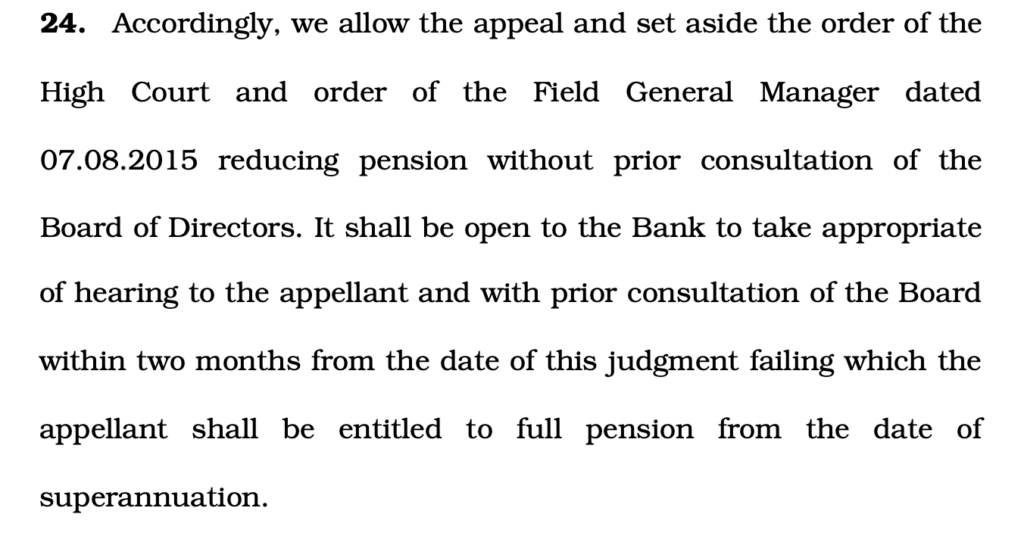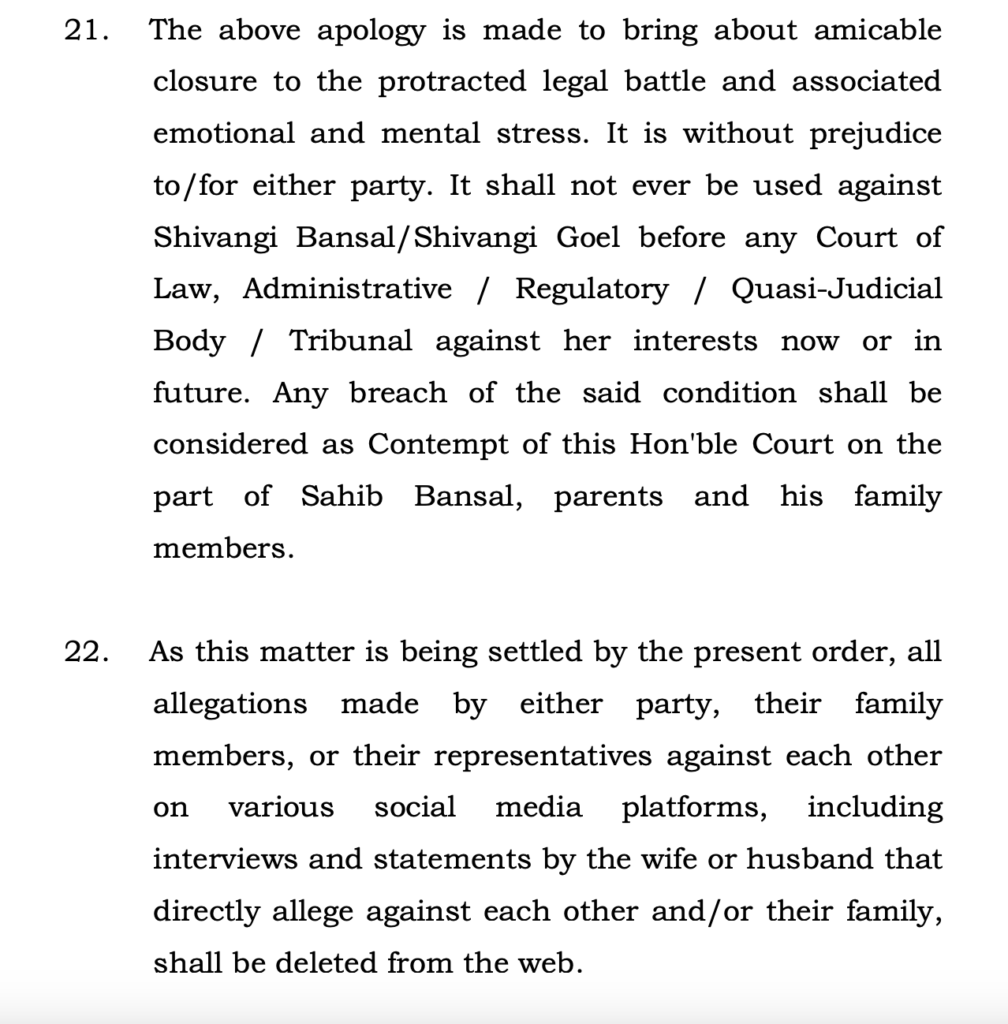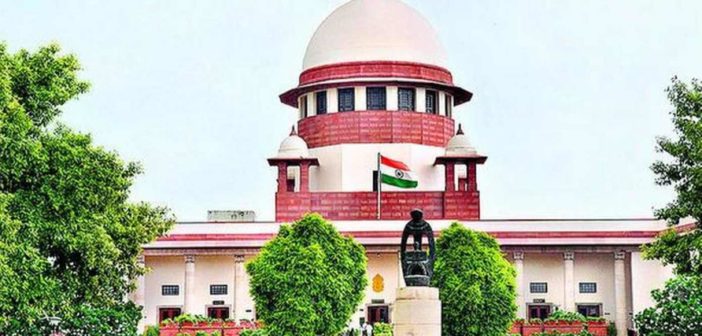In this edition of court judgements review, we look into the Supreme Court’s judgement on Pension as a Constitutional Right, and on false cases on in-laws, Allahabad High Court’s remarks on technology and adolescence, Gujarat High Court’s remarks on demolitions of illegally constructed property and Delhi High Court’s judgement on maintenance vis-à-vis capabilities to earn.
Supreme Court: Pension is a Constitutional Right, can’t be reduced without a proper procedure
In the case of Vijay Kumar vs. Central Bank of India & Ors., the Supreme Court ruled that pension is a constitutionally protected right under Article 300A and cannot be reduced without following due legal procedure. The appeal challenged a Patna High Court order that upheld the reduction of Vijay Kumar’s pension by one-third.
Vijay Kumar, a former Chief Manager, faced disciplinary proceedings for irregularities in loan sanctioning during his tenure as Branch Manager. Although he retired in November 2014, the inquiry continued post-retirement, and he was penalised with compulsory retirement, receiving only two-thirds of his pension.
The appellant argued that pension is a constitutionally protected right under Article 300A and cannot be curtailed without following due process. He contended that under Regulation 33 of the Pension Regulations, any reduction in pension must involve prior consultation with the Bank’s Board of Directors.
In response, the Bank maintained that since the officer who reduced the pension was of a higher rank than the disciplinary authority, consultation with the Board was not necessary. They argued that clauses (1) and (2) of Regulation 33 apply in different contexts.
The Supreme Court held that both clauses must be read together and not in isolation. It ruled that even if a higher authority is exercising appellate powers, prior consultation with the Board is mandatory before reducing pension. The Court also clarified that pension is not a discretionary benefit but a property right that cannot be taken away arbitrarily.
Setting aside the High Court’s decision, the Supreme Court quashed the pension reduction and directed the Bank to either consult the Board and hear the appellant within two months or pay full pension from the date of his retirement.

Supreme Court: Dissolves marriage, ends all legal battles between estranged couple
In Shivangi Bansal vs. Sahib Bansal, the Supreme Court on 22 July 2025 invoked its extraordinary powers under Article 142 of the Constitution to dissolve the marriage between the estranged couple and bring an end to their prolonged and bitter legal dispute. The judgment not only granted a divorce but also comprehensively quashed more than 20 pending civil and criminal cases filed by both sides and their families across courts in Delhi and Uttar Pradesh.
The couple, married in December 2015, separated in October 2018 following serious marital discord. Their legal conflict spanned multiple jurisdictions and included FIRs under sections related to domestic violence, dowry harassment, rape, and criminal breach of trust, as well as counter-cases of defamation, assault, and custody disputes. Amid this legal chaos, their minor daughter had remained with the mother.
Acknowledging the settlement terms mutually agreed upon by both parties, the Court awarded permanent custody of the child to the mother, while granting the father supervised visitation rights, gradually transitioning to regular access during vacations. The mother voluntarily waived all claims to alimony or maintenance, including for the child. Consequently, the Court quashed a prior Allahabad High Court order directing the husband to pay ₹1.5 lakh per month as child support.
As part of the settlement, the wife’s mother agreed to transfer the disputed agricultural land in Aligarh to the husband. Additionally, the wife, Shivangi Bansal, was directed to issue a formal, unconditional apology both in national newspapers and across social media platforms for the emotional and reputational harm caused to the husband’s family. However, the Court made it clear that this apology shall not be treated as an admission of guilt and cannot be used against her in the future.
The Court further ordered that neither party nor their families shall initiate any future litigation related to these matters and warned that any such act would amount to contempt. It also directed the removal of defamatory or accusatory content posted by either party online. Lastly, the Court expunged adverse remarks made against Shivangi Bansal in a previous High Court judgment and ordered police protection for the husband and his family.

Allahabad HC: Juvenile cannot be tried as an adult without a proper assessment; Social media has nefarious effects on adolescents.
In Juvenile X vs. State of U.P. and Others, the Allahabad High Court set aside orders of the Juvenile Justice Board and the Special POCSO Court that had directed a 16-year-old boy to be tried as an adult for a heinous offence. The boy was accused of engaging in a year-long consensual physical relationship with a 14-year-old girl, which led to her pregnancy and a subsequent abortion. The pregnancy was allegedly terminated with the assistance of the boy and two adult co-accused.
The Juvenile Justice Board had conducted a preliminary assessment under Section 15 of the Juvenile Justice (Care and Protection of Children) Act, 2015 and concluded that the child had sufficient mental and physical capacity to commit the offence and understand its consequences. This assessment was upheld by the POCSO Court. However, both courts largely relied on the nature of the offence rather than the child’s actual mental condition.
On appeal, the High Court examined the material on record, including a psychological evaluation that found the boy had mild intellectual disability and low social adaptability. His mental age was assessed to be approximately six years. The Court held that mechanical reliance on the seriousness of the offence, without a careful and individualised assessment of the juvenile’s capacity and maturity, violates the spirit of juvenile justice law.
The Court also reflected on the challenges of adolescence in the digital age, noting that young individuals today are exposed to adult content, peer pressure, and virtual influences far beyond their maturity levels. In such cases, the response of the law must prioritise guidance and rehabilitation over retribution.
Citing the objective of the Juvenile Justice Act to provide care, protection, and rehabilitation rather than punishment, the Court ruled that trying the boy as an adult would defeat the purpose of the legislation. It emphasised that such a decision must be the exception, not the rule, and must be based on a thorough analysis of cognitive and emotional maturity, not merely the gravity of the charge.
Accordingly, the High Court quashed the orders of the Juvenile Justice Board and the POCSO Court and directed that the child be tried as a juvenile under the appropriate procedure by the Juvenile Justice Board.
Gujarat HC: Citizen who has no regard for law is not entitled to seek any relief under the Law, and it would amount to misplaced sympathy
In Mohmmad Sarifvisad Purvala & Others vs. Ahmedabad Municipal Corporation & Others, the Gujarat High Court dismissed a petition filed by over 40 residents of “Shana Apartment” in Jamalpur, Ahmedabad, who challenged the municipal authority’s demolition notices. The residents claimed they were innocent homebuyers who had purchased flats from a developer through registered sale deeds and were unaware that the construction was unauthorised.
However, the Court found that the building was constructed without approvals, and despite multiple sealing orders and stop-work notices issued as early as 2019, construction and occupation continued illegally. The land in question also fell within 300 metres of a centrally protected monument, where construction is strictly prohibited under the Ancient Monuments and Archaeological Sites and Remains Act, 1958 (AMASR Act).
The Court held that such constructions cannot be regularised under the Gujarat Regularization of Unauthorized Development Act, 2022 (GRUDA), especially when done in clear violation of heritage protection laws. It rejected the petitioners’ plea for more time, noting that some had broken seals and reoccupied the premises, demonstrating wilful disobedience.
The Court ruled that illegal construction cannot be shielded by sympathy, and upheld the corporation’s right to remove the unauthorised structures.
Delhi HC: Capability to earn and actual earnings are two separate things, maintenance cannot be denied based on qualifications
In Sachin Kumar Daksh vs. Mamta Gola & Others, the Delhi High Court dismissed the husband’s appeal challenging an interim maintenance order passed by the Family Court. The husband had been directed to pay ₹10,000 per month to his wife and ₹15,000 per month for their minor daughter during the pendency of the divorce case.
The couple married in December 2019 but separated in March 2021. While the husband alleged that the wife was financially independent, working multiple jobs and concealing her income, the Court found no convincing evidence to support these claims. The wife, though well-qualified (B.Tech and MBA), had stated she was unemployed and only earned small commissions as an insurance agent.
The Court clarified that a woman’s ability to earn is not the same as actual income, especially when she may have given up work to care for a child. The husband’s other claims, including existing financial liabilities and support for his parents, were not sufficient grounds to reduce maintenance.
Finding no error in the Family Court’s reasoning, the High Court upheld the maintenance order and dismissed the appeal.



